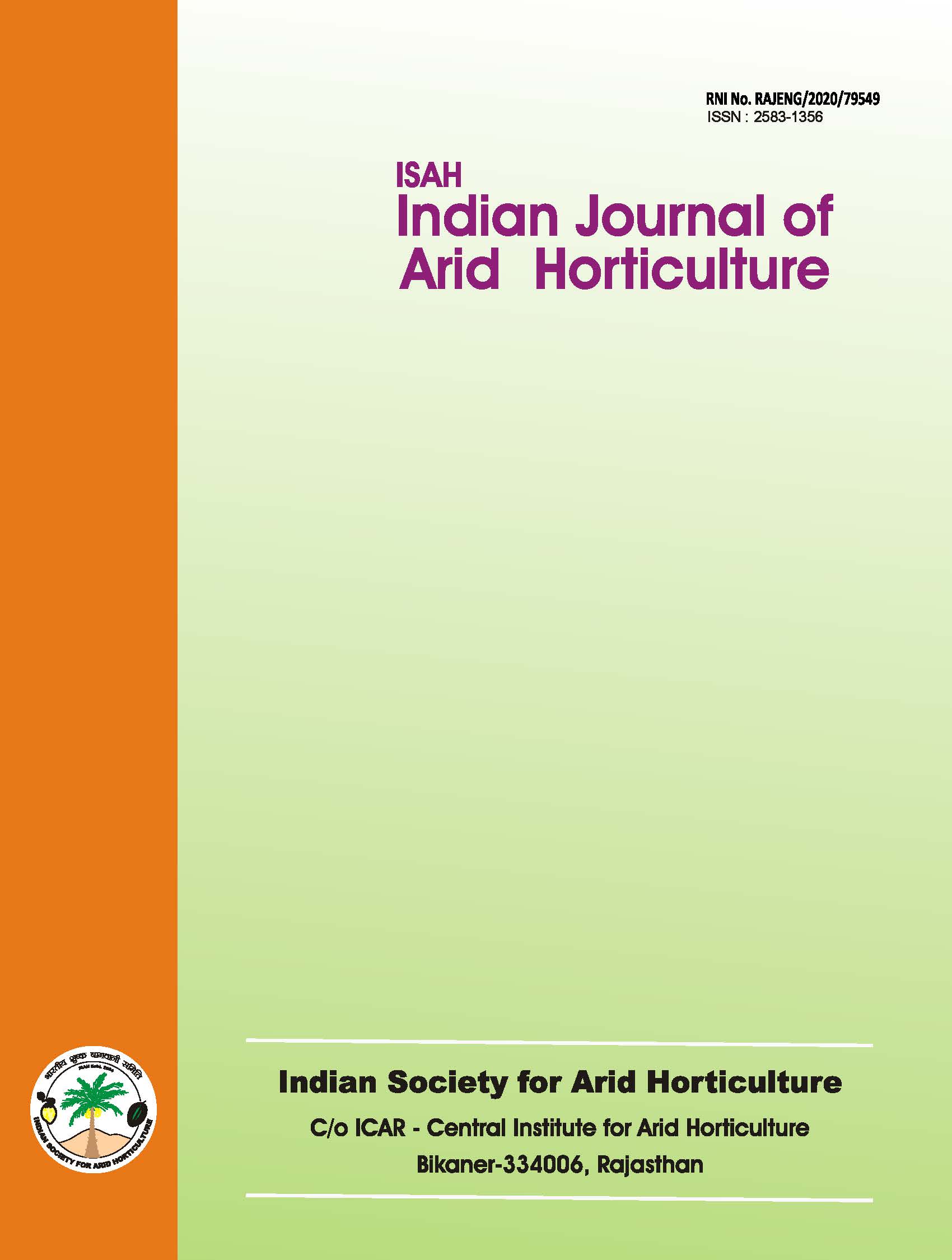Characterization of underutilized fruit crops: bael and karonda by RAPD marker
Keywords:
Bael Germplasm, Karonda, RAPD, DNA, DendogramAbstract
Twenty four accession of Bael, representing four cultivars (Pant Shivani, Pant Urvashi, Pant Sujata and Pant Aparna) and seven accessions of Karonda, representing three cultivars (Pant Manohar, Pant Sudarsan, and Pant Suvarna) have been characterized with RAPD markers. In case of Bael out of the 19 primers screened, 5 were amplified reproducible bands and only three primers were selected for polymorphic study. Out of 10 DNA fragments amplified with three random primers, 8 showed polymorphism. These genotypes were classified into two major groups with each containing three sub- groups. While, in Karonda out of the 19 primers screened, 4 primers amplified reproducible bands and only two primers were selected for the polymorphic study. Out 10 DNA fragments amplified with two random primers, 7 were polymorphic. These genotypes were grouped into two major clusters and one cluster containing two sub- clusters while other consists only one cluster. RAPD data were analyzed by cluster analysis and UPGMA Our analysis revealed that in Bael, some genotypes are identical at DNA level but given different name whereas, Karonda genotypes showed the existence of considerable variation among the test accessions.Downloads
References
Cortes, F. S., Nadenes, M. L., Paz, A., Iniguez, A. and Llacer, G. 2001. Molecular characterization of olive cultivars using RAPD markers. Journal of American Society for Horticultural Sciences. 126: 7-12.
Deng, Z. N., Gentile, A., Nicolosi, E., Domina, F., Vardi, A. and Tribulato, E. 1995. Identification of in vivo and in vitro lemon mutants by RAPD markers. Journal of Horticultural
Sciences. 70: 117-125. Hancock, J. F., Callow, P. A. and Shaw, D. V. 1994. Randomly amplified polymorphic DNAs in the cultivated strawberry Fragaria x ananassa. Journal of American Society for Horticultural Sciences. 119:862-864.
Matsumota, S. and Fukui, H. 1996. Identification of rose
cultivars and Clonal plants by random. amplified polymorphic DNA. Scientia Horticulturae. 67: 49-54.
Misra, K. K., Singh, V. P. and Rai, D. 2003. Identification of
genetic similarity among Bael genotypes using seed protein electrophoresis. Fifth Indian Agricultural Scientists and Farmers Congress 15-15 Feb, Allahabad. pp 22.
Murray, M. G. and Thompson, W. F. 1980. Rapid isolation of high weight plant DNA. Nucleic Acid Research. 8:4321-4325.
Rohlf, F.J. 2000. NTSYS-PC numerical tax and multivariate analysis system version 1.60. Exeter Publication Limited, Setauket, New York
Ulanovsky, S., Gogorcena, Y., Toda, F.M. and Ortiz, J.M. 2002. Use of molecular markers in detection of synonymies and homonymies. Scientia Horticulturea. 92: 241-254.
William, J.G.K., Kubelik, A.R., Livak, K.J., Rafalski, J.A.
and Tingey, S.V. 1990. DNA polymorphisms amplified by arbitrary primers are useful as genetic markers. Nucleic Acid Research. 18: 6531-6535.
Xu, H., Wilson, D.J., Arulsekar, S. and Bakalinsky, A.T.
1995. Sequence specific polymerase chain- reaction markers derived from randomly amplified polymorphic DNA markers for fingerprinting grape (Vitis) rootstocks. Journal of American Society for Horticultural Sciences. 120: 714-720.

